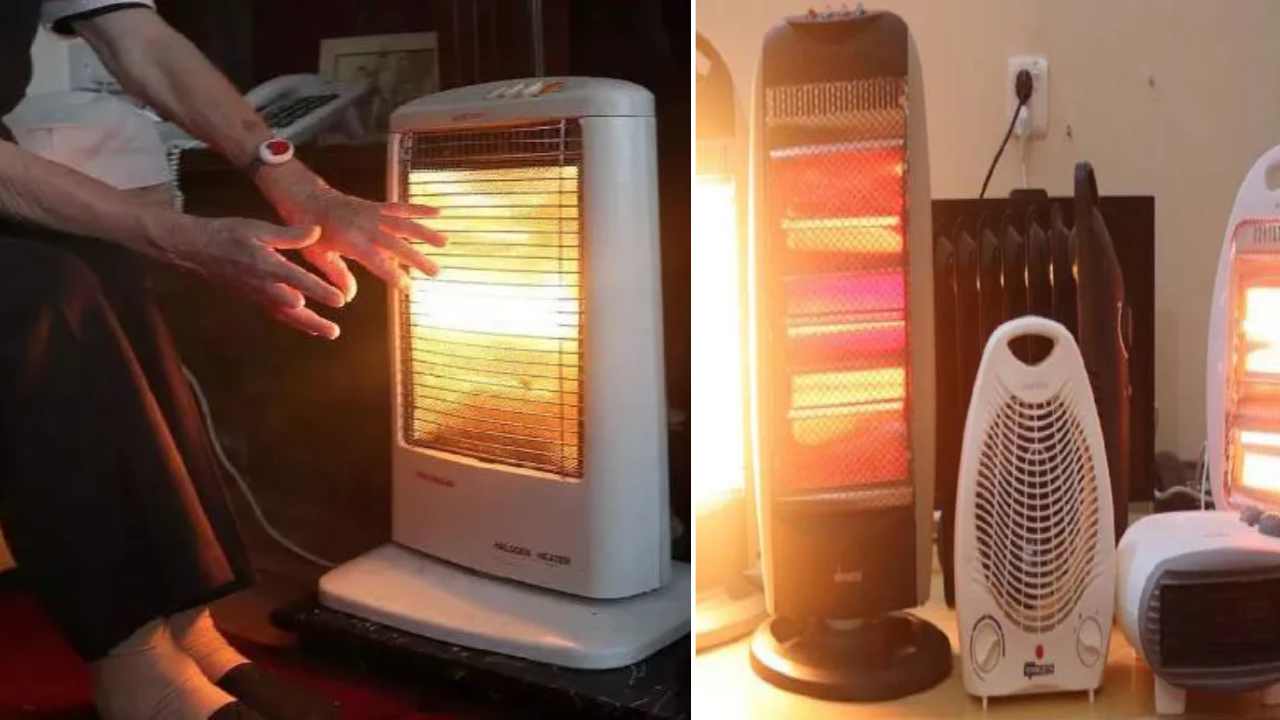During the winter season, people employ various methods to stay warm. In rural areas, traditional methods like burning wood or cow dung patties are common. Conversely, urban dwellers rely more on room heaters or blowers. However, excessive use of heaters can be detrimental to health. It's crucial to exercise caution when using them, especially for individuals with asthma. People often bundle up in layers to ward off the biting cold, yet still shiver. In both rural and urban settings, heaters frequently become the preferred solution this time of year. While heaters provide respite from the cold, they also pose several health risks. If you rely on heaters constantly to keep warm, it's important to be aware of the associated dangers.
Risks Associated with Room Heaters:
While many people favor room heaters, they often overlook the potential risks. Most room heaters employ a red-hot metal rod that absorbs moisture and warms the air, thereby raising the room temperature.
The heated air expelled by heaters can significantly dry out the skin, potentially causing difficulties sleeping and headaches. Excessive use of traditional heaters, halogen heaters, or blowers can harm your health as the chemicals released from these heaters enter the body through respiration, leading to internal damage. Individuals with asthma or allergies are particularly advised to avoid prolonged exposure to heaters.
Issues Relating to Children:
Room heaters are not only harmful to adults, but they also pose risks to children. Prolonged exposure to room heaters can damage children's skin and nasal passages, leading to symptoms like coughing, sneezing, chest congestion, and respiratory problems. Furthermore, exposure to heaters can result in skin rashes and runny noses in infants.
Potential Oxygen Depletion:
Never use heaters in a closed room for extended periods as they rapidly deplete the air's oxygen content, resulting in symptoms like dizziness, nausea, and headaches. To maintain normal oxygen levels, ensuring proper ventilation in the room while using a heater is recommended.

Harmful Effects of Toxic Gases:
Heaters emit toxic gases, such as carbon monoxide, which can have severe effects on the brain, especially in infants. Exposure to carbon monoxide poses health risks not only for children but also for adults. Individuals with asthma or respiratory allergies are advised to avoid staying in rooms with heaters.
Potential for Asthma:
If you have asthma or any respiratory problem, it's advisable to minimize heater use. Heaters release not only warm air but also gases that can cause coughing, eye irritation, and skin itching.
Remedies:
If you're purchasing a heater, consider an oil heater, which is generally safer than other types.
Place a container of water near the heater to add moisture to the air and prevent dryness.
If you experience eye irritation due to the heater, immediately flush your eyes with cool water.
Avoid using heaters continuously overnight, as this can lead to dry skin and breathing difficulties. Instead, turn off the heater an hour or two before bedtime after the room has reached a comfortable temperature.
Open a window or door if the room becomes excessively warm to restore a normal temperature.
Heaters can also damage skin. Prolonged exposure can lead to dry skin, itching, and darkening of the skin. Therefore, limiting heater use to shorter periods and turning them off when the room is sufficiently warm is recommended.
Note: This article is intended for informational purposes only. We do not provide medical advice or treatment. Only a qualified medical professional can provide appropriate advice, as they possess the necessary expertise.











